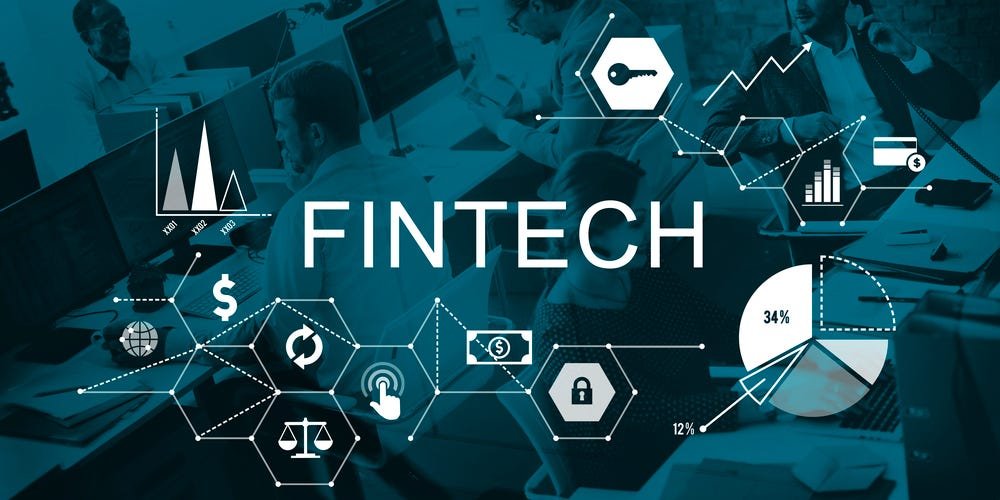Fintechzoom.com Presents: The Future of Finance and Technology Revolutionizing Personal Finance & Banking
Introduction
In the fast-paced world of finance and technology, staying updated with the latest trends is crucial. Fintechzoom.com Presents an in-depth look at the transformative role technology is playing in the financial sector. Whether you’re an investor, a tech enthusiast, or simply someone looking to understand the changing landscape of finance, this post is for you. We’ll delve into the exciting innovations driving the fintech revolution and how they are reshaping the way we manage, invest, and interact with money.
The Evolution of Financial Technology
Fintechzoom.com Presents a comprehensive overview of the journey from traditional banking to the modern-day fintech ecosystem. The term ‘fintech’ is a portmanteau of financial technology, and its impact on banking, investment, and financial services cannot be overstated.
The Birth of Fintech
Fintech began to take shape with the introduction of online banking in the late 1990s. Fast-forward to the present day, and we see a wide array of services—mobile payments, robo-advisors, peer-to-peer lending, and blockchain technology—revolutionizing the financial world.
The Rise of Digital Payments
One of the most significant areas impacted by fintech has been the payments sector. Mobile payment systems such as Apple Pay, Google Wallet, and digital currencies like Bitcoin are changing how transactions are conducted globally. Fintechzoom.com Presents insights into how these technologies are offering greater convenience, security, and efficiency.
Key Technologies Shaping the Future of Finance

As Fintechzoom.com Presents, several emerging technologies are at the forefront of transforming finance. Here’s a look at some of the key innovations:
1. Blockchain Technology and Cryptocurrency
Blockchain is perhaps the most groundbreaking technology to emerge in recent years. Initially popularized by cryptocurrencies like Bitcoin and Ethereum, blockchain offers a decentralized, secure method for recording transactions. It promises to enhance transparency, reduce fraud, and streamline processes across industries.
Cryptocurrencies have also paved the way for decentralized finance (DeFi), which seeks to eliminate intermediaries like banks in financial transactions. Fintechzoom.com Presents how DeFi is creating a more inclusive financial system by offering direct peer-to-peer financial services.
2. Artificial Intelligence and Machine Learning
AI and machine learning are revolutionizing data analysis in finance. These technologies help companies predict market trends, automate customer service (via chatbots), and optimize investment strategies. The ability to process massive amounts of data allows firms to make more informed decisions faster than ever before.
Fintechzoom.com Presents how these innovations are improving risk assessment, fraud detection, and personal finance management. AI-driven platforms can now offer personalized investment advice tailored to an individual’s unique financial goals.
3. Robo-Advisors and Wealth Management
Gone are the days when only the wealthy had access to personalized financial advice. Robo-advisors have democratized wealth management, allowing users to access affordable, automated investment strategies. These platforms use algorithms to create customized portfolios for users, often at a fraction of the cost of traditional financial advisors.
Fintechzoom.com Presents how robo-advisors are empowering the next generation of investors by making wealth management more accessible and cost-effective.
4. Regtech: Transforming Financial Regulation
Financial regulations can be complex and time-consuming, but Regtech is here to simplify compliance. By utilizing AI, big data, and blockchain, Regtech companies are automating compliance processes, reducing the risk of fraud, and enhancing the overall efficiency of the financial system.
As Fintechzoom.com Presents, Regtech’s role is crucial in ensuring that financial institutions can meet regulatory standards without compromising on security or efficiency.
The Impact of Fintech on Traditional Banking
The traditional banking system has long been the backbone of the global economy, but fintech is disrupting this model in significant ways. Fintechzoom.com Presents an exploration of how fintech is pushing traditional banks to innovate and adapt to the digital age.
Digital-Only Banks
Digital-only banks, or “neobanks,” are challenging the status quo by offering banking services entirely through digital platforms. These banks typically offer lower fees, better user experiences, and cutting-edge financial tools. The rise of neobanks has prompted traditional banks to reconsider their offerings and adopt digital solutions to meet consumer demand.
Open Banking and APIs
Open banking is another significant shift in the financial sector. By allowing third-party developers to access banking data through APIs, open banking enables the creation of innovative financial products and services. Fintechzoom.com Presents how open banking fosters collaboration between banks and fintech startups, leading to a more dynamic financial ecosystem.
How Fintech is Revolutionizing Personal Finance
Personal finance has also been dramatically reshaped by fintech, with a wide variety of tools designed to help individuals manage their money better. Fintechzoom.com Presents a closer look at the tools and platforms that are making managing personal finances more accessible and efficient.
Personal Finance Apps
From budgeting apps like Mint and YNAB to savings tools like Acorns and Digit, personal finance apps have become an essential part of everyday life. These apps help users track spending, set financial goals, and automate savings, all while providing insights into their financial habits.
Peer-to-Peer Lending
Peer-to-peer (P2P) lending platforms have made it easier for individuals to borrow and lend money without the need for traditional financial institutions. These platforms connect borrowers with investors, often offering better interest rates than banks.
Fintechzoom.com Presents how P2P lending is not only benefiting consumers but also creating new investment opportunities for individuals.
The Future of Fintech: What’s Next?

As we look ahead, the future of fintech is full of promise. Fintechzoom.com Presents a glimpse into the next wave of innovations in the financial technology space.
1. Quantum Computing
Quantum computing has the potential to revolutionize finance by solving complex problems at speeds unimaginable with today’s computers. From optimizing investment strategies to simulating financial models, quantum computing could have a profound impact on the fintech industry.
2. 5G and the Internet of Things (IoT)
The advent of 5G technology will enable faster data transfer and more reliable connectivity, opening up new possibilities for fintech applications. Paired with the growth of IoT, which connects devices to the internet, these technologies will further enhance the efficiency and accessibility of financial services.
3. Biometric Security
As security concerns continue to grow, biometric technology will play a pivotal role in protecting sensitive financial data. With advancements in facial recognition, fingerprint scanning, and voice authentication, financial institutions will be able to offer more secure and user-friendly authentication methods.
Conclusion
The future of finance and technology is bright, with fintech leading the way toward a more inclusive, efficient, and accessible financial system. Fintechzoom.com Presents the innovations that are transforming the financial landscape, from blockchain to AI to digital-only banks, all of which are redefining how we think about money. Whether you’re an individual looking to improve your personal finances or a business seeking to stay ahead in the competitive financial services market, understanding these technologies will be key to success.
As Fintechzoom.com Presents, the fintech revolution is just beginning. The rapid pace of innovation promises even more groundbreaking changes in the years to come, making it an exciting time to be involved in the intersection of finance and technology. Stay informed, stay ahead, and embrace the future of finance.





Post Comment